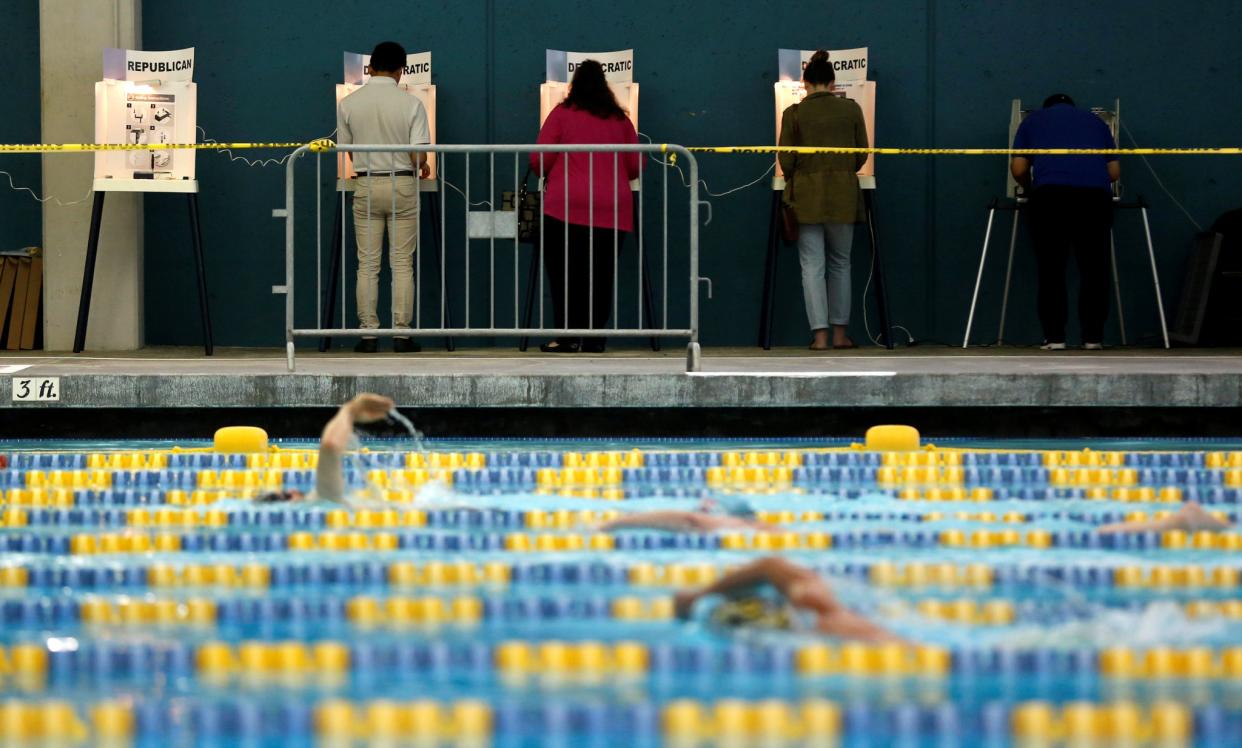Trump’s lack of a data operation is hurting the GOP, operatives say

One of the many ways that Donald Trump has weakened the Republican Party is by doing little in his presidential campaign to target voters through the use of data, analytics and digital tools, a group of Republicans said Thursday.
“I don’t think there’s anyone who’s going to look at the Trump campaign and think that they ran a strong data operation,” said Chris Wilson, who oversaw data analytics for Sen. Ted Cruz’s presidential campaign.
Wilson’s concern is that a presidential campaign is the biggest opportunity a political party has to create a culture that helps the party win elections up and down the ticket.
“The last two campaigns, even though you may have had losing [Republican] campaigns, you had very solid operations for digital and analytics — the overall data side — that came out of those campaigns. I don’t feel that there’s anything that continues from the Trump campaign,” Wilson said. “We are losing the ability to grow our Republican ecosystem from a standpoint of the areas where we are already behind, and that is on the digital side and the data side and the analytics side.”
“That’s a shame,” Wilson said during a panel conversation at Washington’s Howard Theater, convened by the Republican data firm Targeted Victory, which has handled some electronic payment processing for the Trump campaign this year.
After the 2008 and 2012 campaigns, Republicans vowed to improve their use of data in elections. President Obama’s two presidential campaigns were lauded for their innovative uses of technology. Some press coverage of Obama’s wizardry might have been overhyped, but smart Republican consultants understood that data and digital are important new tools that can make big differences in close elections.
Yet Trump has for much of his candidacy scoffed at the role of data and individualized targeting of voters. He dismissed it as “overrated” in May, and said his candidacy would succeed based on holding large rallies.
Since then, his campaign has paid a paltry sum of $100,000 to one data targeting group, Cambridge Analytics, according to the most recent federal disclosure forms. Cruz’s campaign paid the same group almost $6 million in the primary.
Democratic nominee Hillary Clinton inherited the data-infused campaign culture built during Obama’s two election cycles — people, best practices and information — and is currently preparing to maximize her vote totals in the increasingly important area of early voting.
Trump, by contrast, is not only woefully underprepared to run a ground game in most battleground states, but has also recently reshuffled his top campaign leadership for the third time this year. Now, with former Fox News chairman Roger Ailes advising him and preparing him for the fall debates with Clinton, he is betting everything on a mass media approach to the campaign.
David Carney, a Republican consultant who ran Rick Perry’s 2012 campaign, drew laughs from the crowd inside the Howard Theater when he mocked the Trump campaign’s lack of investment in data and digital.
“His digital effort will be cost-efficient,” Carney said. “Money spent on digital and data per vote will be a record low.”


